Practicing Away from the Instrument
Many people believe that the only way to build skill and to progress on an instrument is to spend countless hours locked away in a room with said instrument. However, many of the musical skills that we hope to cultivate are theoretical in nature, and the reality is that having a physical distraction (like an instrument) actually detracts from our ability to establish these skills and slows our progress.
So, what kinds of activities can we thoughtfully engage in without our instruments in hand?
Listening to Recordings - What better way is there to improve your sense of aesthetics and understanding of musical form than by studying recordings of world-famous performers? Set aside time each day to select a quality recording of a piece you are currently learning, and with the score in front of you, notice the small details that the performer has chosen to do from the same music that you are studying.
Clapping & Counting - Accurate rhythm is fundamental to music. If understanding how a beat subdivides or keeping a steady tempo is a challenge, set aside time to work with a metronome and clap & count out sections of music you do not understand or that you feel rush or slow down.
Visualization - Sometimes, after a string of unsuccessful attempts, our confidence suffers, and we start to believe that we are unable to perform a specific action. Visualizing success (and what that looks and feels like in the body) can help us step back and look at how we are doing things objectively. Corrections become easier to make, and we are often able to “see” solutions that we weren’t able to see before.
Ear Training - Good intonation is characterized bybeing able to recall a variety of elements in detail such as what the pitch sounds like in your mind, and what it feels like, specifically, for the body to produce the pitch. The more detail you can recall, the more accurate your intonation becomes! As professionals often say - “If you can’t hear it in your mind (or better yet, sing it), then you can’t play it!”
